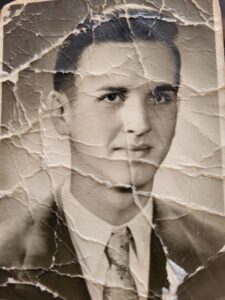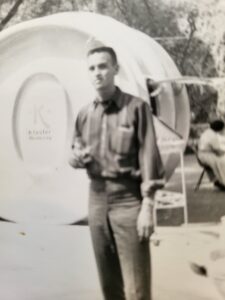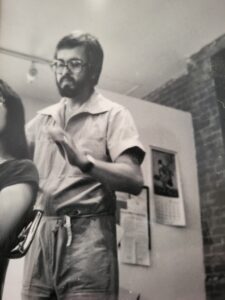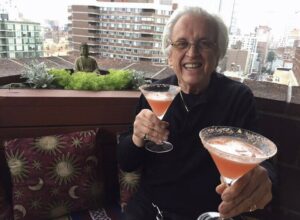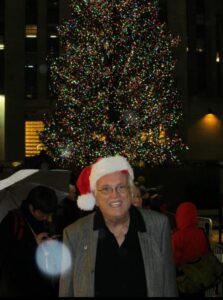Manuel Garza was born in San Antonio, Texas, in 1935. He found gay peers in junior high and high school through playing in the school band, but the backdrop of homophobia loomed large: entrapment and raids on parties were commonplace. On one occasion, Manuel was even questioned by the FBI about a gay friend who was a typist for the federal government. Still in high school, Manuel was kicked out of the house by his alcoholic father. Working checkout at a supermarket to save money, Manuel finally managed to “burn the bridge” behind him and move to New York City at age 22 with just $45 in his pocket.
A friend got Manuel a room with an elderly gay couple, and he worked lots of “little horrible jobs” until he landed in hairdressing. He volunteered as an activist with the Mattachine Society, working in their office and attending their West Side Discussion Group. He wasn’t present at the Stonewall riots in 1969, but he marched in the first Pride March the following year. “People were booing us and construction workers were mooning us. We thought that was funny, these straight butch men mooning us.”
Manuel was raised Catholic, but the homophobia and hypocrisy bothered him. When he was told that taking testosterone would make him “straighter” or more butch, he told the priest, “I think you’re full of bullshit,” and left Catholicism for good. He became an Episcopalian and became part of a group called Integrity, dedicated to making space within the denomination for queer people. When a professor at General Theological Seminary was kicked out of the living facilities for living with her partner, Integrity rallied for her and got her reinstated. Manuel dedicated up to 40 hours per week to Integrity, delivering the group’s newsletter to the post office and making sure it got sent out – even though the postal workers tried to label the newsletter as pornographic.
By the time the AIDS crisis began, Manuel was running a hair salon, and he watched as his employees, clients, and friends started dying. He quickly pivoted into action – bravely using a friend’s Mormon funeral service and to raise $6,000 for the nascent Gay Men’s Health Crisis. He went to Roosevelt Hospital nearly every Sunday, bringing pastries and coffee to HIV patients and playing the radio for them.
At the time of his Legacy of Voices interview in 2010, Manuel had survived prostate cancer. In spite of moving a bit more slowly than before, he was still seeing a handful of hairdressing clients, going to the movies, cooking, playing the piano, and volunteering at the Church of St. Luke in the Field, where he continued his weekly ministry to people living with HIV: cooking meals for them on Saturdays, and bringing tea every week to patients at St. Vincent’s Hospital. Manuel passed away in April 2020. “I see a plant, a flower, an animal, something created it, and I’m in awe about that. And I’m in awe of human beings.”

